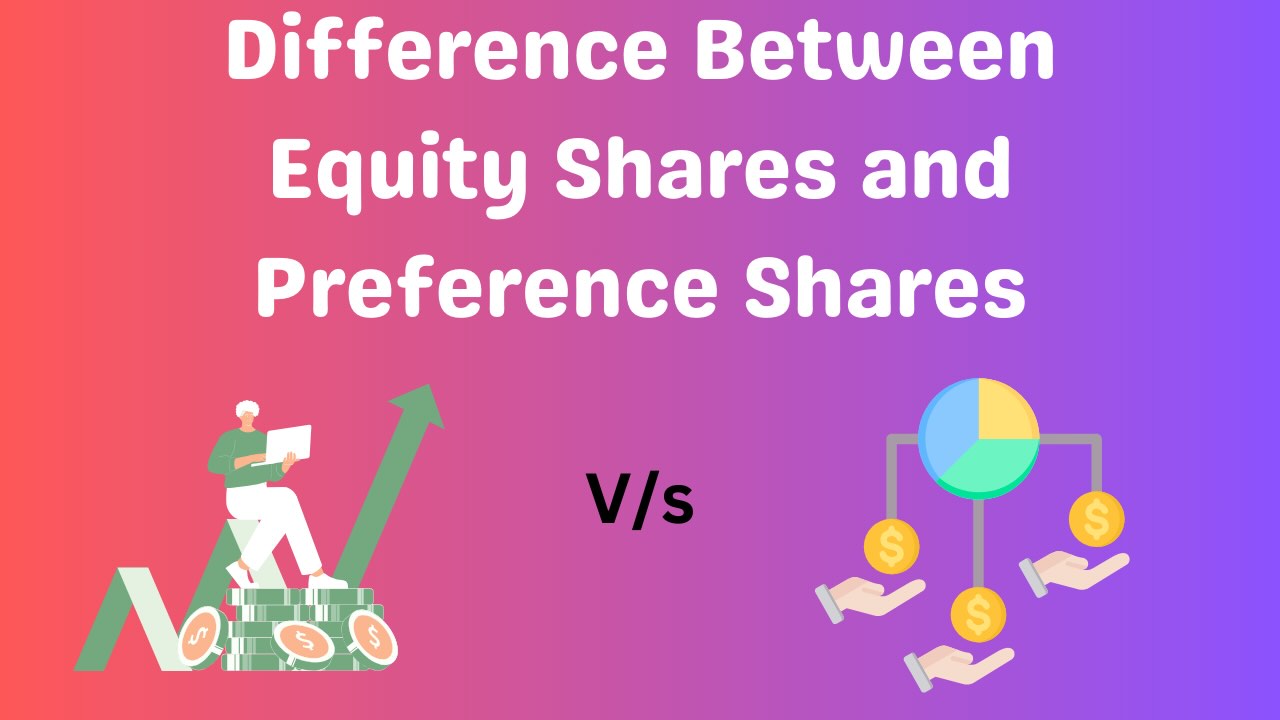Difference Between Equity Shares and Preference Shares. a share as “a share in the share capital of a company, and includes stock except where a distinction between stock and shares is expressed or implied.”
- (a) A share is a right to a specified amount of the share capital of a company, carrying with it certain rights and liabilities while the company is a going concern and in its winding up. (Halsbury’s Laws of England)
- (b) A share is the interest of a shareholder in the company measured by a sum of money, for the purposes of liability in the first place, and of interest in the second, but also consisting of a series of mutual covenants entered into by all the shareholders inter se. [Borland’s Trustee v. Steel Bros., (1901)].
Quick Links
Preference Shares:
Preference shares are those which have a preferential right to the payment of dividends during the life-time of the company and a preferential right to the return of capital when the company is wound up.
Equity Shares
An equity share, commonly referred to as an ordinary share also represents the form of fractional or part ownership in which a shareholder, as a fractional owner, undertakes the maximum entrepreneurial risk associated with a business venture. The holders of such shares are members of the company and have voting rights. The holders of such shares are members of the company and have voting rights. A company may issue such shares with differential rights as to voting, payment of dividend, etc.
Difference Between Equity Shares and Preference Shares
| Basis | Equity Shares | Preference Shares |
|---|---|---|
| Meaning | Equity shares are the ordinary shares of the company representing the part ownership of the shareholder in the company. | Preference shares are the shares that carry preferential rights on the matters of payment of dividend and repayment of capital. |
| Payment of dividend | The dividend is paid after the payment of all liabilities. | Priority in payment of dividend over equity shareholders. |
| Repayment of capital | In the event of winding up of the company, equity shares are repaid at the end. | In the event of winding up of the company, preference shares are repaid before equity shares. |
| Rate of dividend | Fluctuating. The rate of dividend on equity shares depends upon the amount of profit available and the funds requirements of the company for future expansion etc. | Fixed Rate of dividend |
| Redemption | Equity Shares are always irredeemable. They are payable only at the time of liquidation | Preference shares are always redeemable. Maximum tenor cannot exceed 20 years. |
| Voting rights | Equity shares carry voting rights. | Normally, preference shares do not carry voting rights. However, in special circumstances, they get voting rights. |
| Convertibility | Equity shares can never beconverted. | Preference shares can be converted intoequity shares. |
| Accumulation of dividend | Dividend cannot be accumulated in any case | Dividend gets accumulated if not paid. |
| A company may issue rights shares or bonus shares to the company’s existing equity shareholders. | No bonus shares/right shares are issued to preference share holders. |
Equity Share Capital and Preference Share Capital
‘‘equity share capital’’, with reference to any company limited by shares, means all share capital which is not preference share capital;
‘‘preference share capital’’, with reference to any company limited by shares, means that part of the issued share capital of the company which carries or would carry a preferential right with respect to –
- (a) payment of dividend, either as a fixed amount or an amount calculated at a fixed rate, which may either be free of or subject to income-tax; and
- (b) repayment, in the case of a winding up or repayment of capital, of the amount of the share capital paid-up or deemed to have been paid-up, whether or not, there is a preferential right to the payment of any fixed premium or premium on any fixed scale, specified in the memorandum or articles of the company;
A preference share has a preference in regard to payment of fixed amount of dividend or fixed rate of dividend and preferential right of the repayment of capital in the event of winding up of company.
Other Relevant Articles

